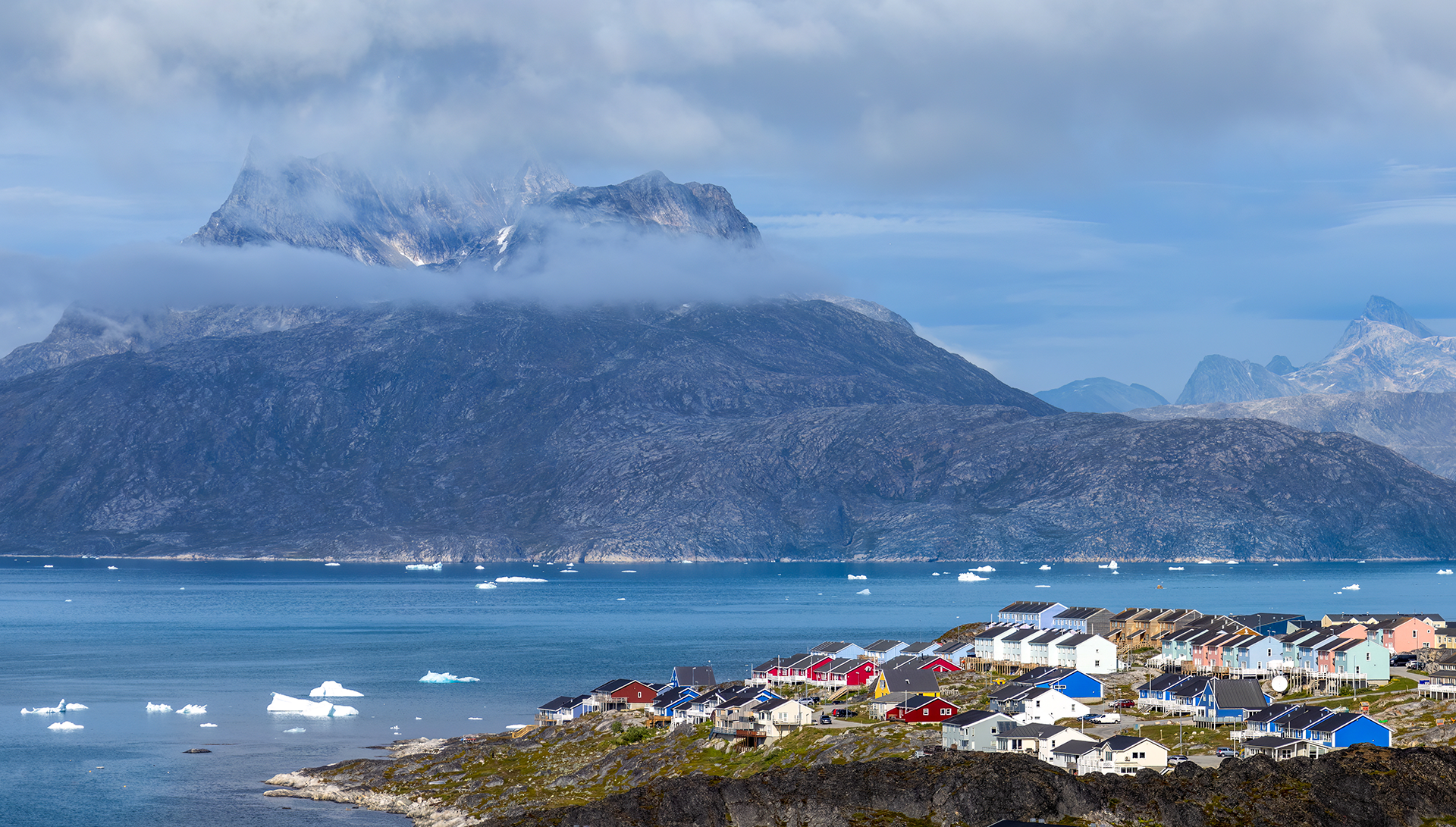News item
Joint Nordic research in the Arctic strengthened: Nine research projects receive funding via NordForsk
24 Danish researchers are participating in the nine research projects that have just received funding from NordForsk to conduct research on sustainable development of the Arctic. The projects cover topics such as oceans, freshwater, biodiversity, overtourism, and minerals.

Nine consortia with researchers from the Nordic countries and North America have received support from NordForsk under the call Sustainable Development of the Arctic. The call was developed in collaboration with research funding organisations from eight countries, with a budget exceeding 330 million Norwegian kroner.
This is the first time NordForsk has collaborated with Canada and the USA, and it is also the first time Greenland has participated as a funding partner in one of NordForsk's calls. Independent Research Fund Denmark participated in the call and contributed 29.3 million DKK to the programme.
Danish researchers are involved in eight out of the nine funded projects, and two of the research projects are led by Danes: Rico Kongsager from Copenhagen University College and Sofia Ribeiro from GEUS – the Geological Survey of Denmark and Greenland.
Broad focus on the Arctic
Despite the wide thematic range, climate change, natural resources, and security are common themes among the nine funded projects. Additionally, Indigenous perspectives are a central element in all the funded projects.
“The projects now receiving funding have undergone two thorough evaluation rounds. The high number of applications, along with the emphasis on interdisciplinarity and Indigenous perspectives, means they have passed through a highly competitive selection process. Together, the nine projects align well with the call’s three inspiration areas: security, natural resources, and societies in transition. This also means we have high expectations for the projects, and we look forward to following them throughout the project period,” says Arne Flåøyen, Director of NordForsk.
186 researchers at 66 organisations
In the first application round, which had a deadline in June 2024, NordForsk received a total of 199 applications. Of these, 36 advanced to the second round, and this week it was announced that the following projects will receive funding:
The projects involve a total of 186 researchers from 66 different universities, institutes, and other research organisations across 10 countries. The largest share of researchers comes from Canada, with 54 participants in the projects. Norway has the second highest number, with 46 researchers, followed by Finland with 25 and Denmark with 24. Greenland and the Faroe Islands contribute seven and four researchers, respectively. See the full figures in the tables below.
Projects to be funded
- Sustainable Human Use of the Marine Environment (SustainME)
Project leader: Jackie Dawson, University of Ottawa, Canada
Project participants from Canada, Denmark, Finland, Greenland, Iceland, Norway, United Kingdom - Addressing Unavoidable Non-Economic Losses to Climate-Induced Events for Communities in the Arctic (LostToClimate)
Project leader: Rico Kongsager, University College Copenhagen, Denmark
Project participants from Canada, Denmark, Faroe Islands, Finland, Greenland, Iceland, Norway, Sweden, United States of America - Arctic freshwater food systems: Influence of warming winters and increased snow cover (FROST)
Project leader: Milla Rautio, Université du Québec à Chicoutimi, Canada
Project participants from Canada, Denmark, Finland, Norway, Sweden, United States of America - Sustainable Multispecies Relations in the Arctic (SPECIES)
Project leader: Richard Fraser, UiT The Arctic University of Norway
Project participants from Denmark, Finland, Norway, United Kingdom - Sustainable and Resilient Communities in remote settlements in the Arctic in the Age of Climate Change (ARCHAIC)
Project leader: Eirik Albrechtsen, Norwegian University of Science and Technology
Project participants from Denmark, Iceland, Norway - Marine phycotoxins in the Arctic: an emerging climate change risk (PHATE)
Project leader: Sofia Ribeiro, Geological Survey of Denmark and Greenland
Project participants from Canada, Denmark, Faroe Islands, Greenland, Iceland, Norway - Adapting LAw for MOving Targets: Climate Change, Overtourism and Biodiversity in Indigenous Arctic National Parks (ALAMOT)
Project leader: Minna Pappila, Finnish Environment Institute
Project participants from Finland, Norway, Sweden - Critical minerals in the Arctic: Challenges and perspectives for the Nordic countries (CRIMINA)
Project leader: Gørild Merethe Heggelund, Fridtjof Nansen Institute, Norway
Project participants from Denmark, Finland, Norway, Sweden - Responsible mine restoration - Integrating local engagement, ecology, and engineered solutions in Arctic environment (RestoMine)
Project leader: Christian Maurice, Luleå University of Technology, Sweden
Project participants from Denmark, Greenland, Norway, Sweden
Co-operation partners
The call Sustainable Development of the Arctic is a collaborative effort between the Research Council of Norway, Research Council of Finland, Independent Research Fund Denmark, Research Council Faroe Islands, Swedish Research Council (VR) and Swedish Research Council for Sustainable Development (Formas), Greenland Research Council, Rannis – Icelandic Centre for Research (with funding from the Ministry of Culture, Innovation and Higher Education), Science and Innovation, National Science Foundation (USA), Canada Research Coordinating Committee (Canada), and NordForsk.
